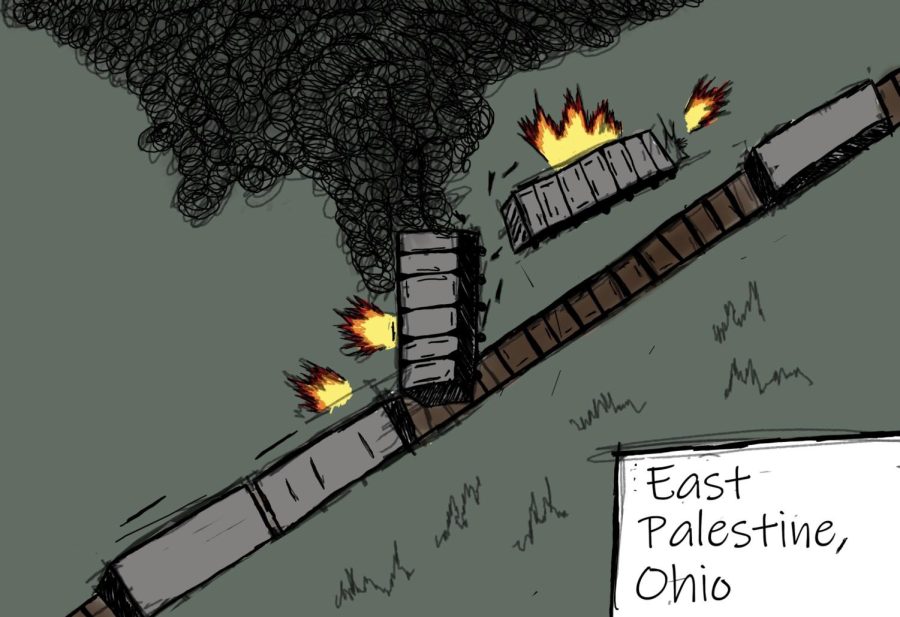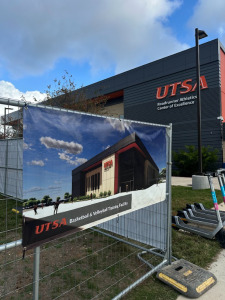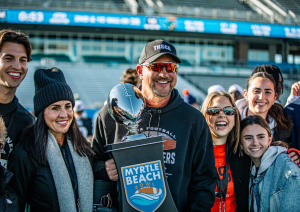Carelessness and its consequences
February 21, 2023
On Feb. 3, a catastrophic train derailment occurred in East Palestine, Ohio. The incident occurred when a Norfolk Southern train carrying hazardous materials was in transit from Madison, Illinois to Conway, Pennsylvania. The event was caused by a mechanical issue with one of the train’s axles, leading to 38 cars derailing, with 12 more being damaged in a fire.
According to the National Transportation Safety Board, there were 20 cars on the train carrying hazardous chemicals, 11 of which were damaged in the derailment. Due to the hazardous chemicals on board, such as vinyl chloride — a highly flammable chemical used to produce PVC plastics — many of the townsfolk within a one-mile radius were evacuated, and a controlled burning of the hazardous materials was conducted. During the controlled burning, the skies in East Palestine were reminiscent of an apocalyptic nightmare, with a growing fire and a rising plume of smoke. After everything, was this tragedy preventable?
According to Norfolk Southern, their accident rate has increased by 0.78% since 2019, all while making record-breaking operating profits at $3.2 billion in 2022. While a 0.78% increase seems minuscule, another Norfolk Southern train carrying hazardous materials derailed in Detroit, Michigan, on Feb. 16 and a Union Pacific train derailed in Splendora, Texas, on Feb. 13.
During the Trump administration, Norfolk Southern and other railroad companies lobbied to repeal a law that would require the implementation of electronically controlled pneumatic brakes (ECP), due to the increase in costs to implement the systems. However, Norfolk Southern previously claimed, “ECP brakes have the potential to reduce train stopping distances by as much as 60 percent over conventional air brake systems” during their 2007 third-quarter report. Norfolk Southern has made their apparent disregard for safety clear as long as their profits remain high.
In September 2022, Railroad Workers United threatened a nationwide strike due to concerns with pay, staffing and working conditions. With neither side willing to budge, Congress used The Railway Labor Act to intervene. With Congress mediating, a deal was made, which ended up being unfavorable to the rail unions. In addition, no real changes were made in workplace safety, once again showing the blatant disregard for safety within the rail industry.
With crashes and derailments becoming more frequent, changes have to be made. The federal government must do what the rail industry will not by implementing safety regulations. Companies such as Norfolk Southern have made it apparent that they could care less if their freighter trains are hazards on the lines as long as profits stay high.








